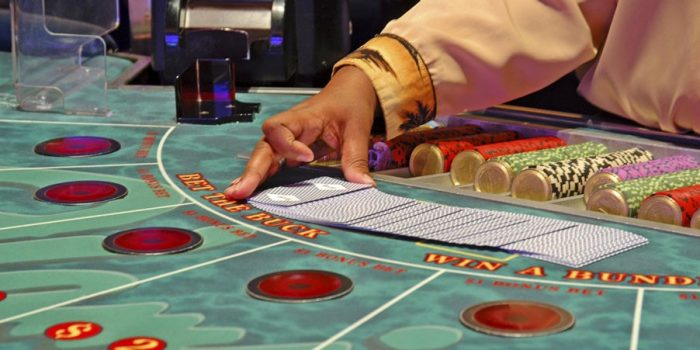Online Casinos vs. Traditional Lotteries: What’s Changing in the Digital Gambling Landscape

The gambling industry has undergone significant transformation in recent years, with 2025 marking a pivotal shift in how people engage with games of chance. This shift isn’t happening without reason. In the first quarter of 2025, mobile gambling transactions increased by 27% year-over-year, with users spending an average of 6.2 hours per week on gambling apps. Furthermore, the average age of online casino players has risen to 37 years, indicating broader acceptance across demographic groups.
Traditional lotteries aren’t disappearing, though. They still generate massive revenue – $172 billion globally in 2024 – but their growth rate of 3.2% pales in comparison to online casinos’ impressive 15.7% expansion during the same period.
Key Differences Between Online Casinos and Traditional Lotteries
Online casinos like Spinago Australia have revolutionized accessibility in the gambling world. With 24/7 availability from any device with internet connection, players no longer need to travel to physical locations. A recent survey by GamingPulse Research found that 76% of online casino players cited convenience as their primary reason for choosing digital platforms over traditional options.
Traditional lotteries have tried to keep pace, with 62% of lottery operators now offering mobile apps for ticket purchases. However, many still require physical tickets for major draws, creating a convenience gap that online casinos readily exploit.
Game Variety and Innovation
One of the most striking differences between these two gambling formats is the sheer variety of games available. The average online casino now offers over 3,000 different games, from slots to table games to live dealer experiences. In contrast, most traditional lottery systems offer fewer than 10 game variations.
Moreover, online casinos introduce approximately 200 new games every month globally, while traditional lotteries typically launch new game formats just 2-3 times per year. This innovation gap has significant implications for player engagement. In 2025, the average online casino player tries 14 different games per month, while lottery players typically stick to 1-2 formats.
Payout Structures and Odds
The difference in winning chances represents another major distinction between these gambling formats. Here’s how they compare:
| Game Type | Average RTP (Return to Player) | Odds of Any Win | Average Payout Amount | Payout Speed |
| Online Slots | 94-97% | 1 in 3.5 spins | $24.50 | Instant to 24 hrs |
| Online Table Games | 97-99% | Varies by game | $31.75 | Instant to 24 hrs |
| State Lotteries | 50-60% | 1 in 24 tickets | $17.20 | 1-30 days |
| Multi-State Lotteries | 45-55% | 1 in 35 tickets | $4.2 million | 7-60 days |
As this data shows, while lotteries offer larger maximum prizes, online casinos provide more frequent wins and higher overall return rates. In addition, 83% of online casinos now offer instant withdrawals, compared to just 12% of lottery operators.
Digital Transformation of Traditional Lotteries
Traditional lottery operators aren’t standing still in the face of online competition. In 2025, we’ve seen significant efforts to modernize these longtime gambling staples:
- Digital ticket purchases have increased by 41% year-over-year
- Subscription services that automatically enter players into drawings are now offered by 78% of lottery operators
- Second-chance drawings through mobile apps have boosted engagement by 29%
- Social features like group play and prize sharing have been implemented by 53% of major lotteries
Despite these innovations, lotteries face regulatory challenges that online casinos often navigate more easily. For example, only 23 U.S. states allow full online lottery participation, while 31 states have some form of legal online casino gambling as of May 2025.
Regulatory Landscape Changes
The regulatory environment continues to evolve rapidly. Recent changes include:
- The European Union’s Digital Gambling Framework, implemented in January 2025, standardized regulations across member states, benefiting online casinos with cross-border operations
- Brazil’s comprehensive gambling legislation, passed in February 2025, opened South America’s largest market to both online casinos and digital lottery sales
- In the U.S., interstate gambling compacts expanded to include 12 states by April 2025, allowing shared player pools for online poker and certain casino games
These regulatory shifts have helped online gambling platforms expand their reach while creating new compliance challenges for traditional lottery operators accustomed to state-controlled monopolies.
Convergence or Continued Divergence?
Industry experts predict that the line between online casinos and traditional lotteries will continue to blur. By 2027, an estimated 70% of lottery tickets will be purchased digitally, and 45% of lottery operators will offer casino-style games through their platforms.
Meanwhile, online casinos are increasingly incorporating lottery elements. Jackpot slots that function similarly to progressive lotteries now account for 17% of all online slot revenue, with prizes occasionally exceeding $10 million.
Making Informed Gambling Choices
For consumers navigating these changing options, several factors should guide decision-making:
- Consider the trade-off between jackpot size and winning probability
- Evaluate personal gambling preferences – entertainment value versus potential return
- Understand the security and regulation status of any gambling platform
- Set appropriate limits regardless of format chosen
The gambling landscape of 2025 offers more choices than ever before. While online casinos continue gaining market share through innovation and accessibility advantages, traditional lotteries maintain their appeal through massive jackpots and trusted brands. The ultimate winner may be the consumer, benefiting from increased competition and the resulting innovations across the entire gambling ecosystem.

NFL Draft Diamonds was created to assist the underdogs playing the sport. We call them diamonds in the rough. My name is Damond Talbot, I have worked extremely hard to help hundreds of small school players over the past several years, and will continue my mission. We have several contributors on this site, and if they contribute their name and contact will be in the piece above. You can email me at nfldraftdiamonds@gmail.com
